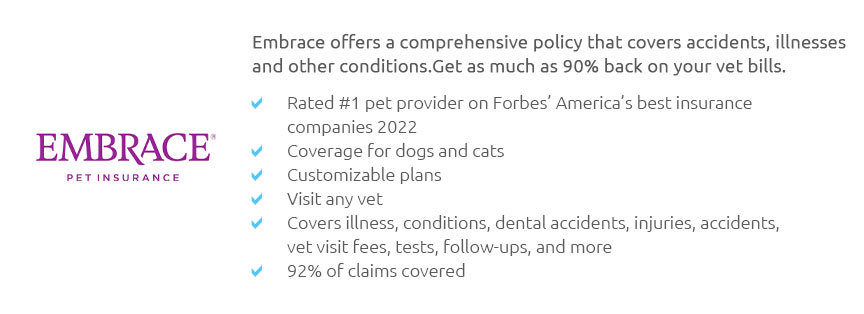 |
 |
 |
 |
 |
|
 |
|
 |
|
 |
|
 |
|
 |
|
 |
|
 |
 |
Pet Insurance That Covers Bilateral Conditions: Understanding Key InformationWhen it comes to ensuring the health and well-being of your pets, understanding the nuances of pet insurance is crucial. One specific area that can be particularly confusing is coverage for bilateral conditions. These are conditions that can affect both sides of the body, such as hip dysplasia or cataracts, which may manifest in one side but have the potential to occur on the other side as well. What Are Bilateral Conditions?Bilateral conditions refer to ailments that can occur on both sides of the body. For example, if your pet develops a condition like cruciate ligament rupture in one leg, it could potentially develop in the other leg too. Insurers often have specific terms regarding these conditions, which pet owners should be aware of before signing up for a policy. Common Bilateral Conditions in Pets
Understanding the specifics of these conditions can help you make more informed decisions when choosing a policy. Importance of Coverage for Bilateral ConditionsHaving coverage for bilateral conditions can significantly affect the overall cost of pet healthcare. These conditions often require extensive treatment or surgery, leading to substantial veterinary bills. When considering pet insurance nj cost, it's crucial to factor in whether bilateral conditions are covered to avoid unexpected expenses. Key Considerations
These considerations can help ensure that your pet's health needs are met without financial strain. Choosing the Right PolicyWhen selecting a pet insurance policy, it's important to read the fine print. Some policies may exclude bilateral conditions or consider them pre-existing if one side was affected before the policy began. It's also wise to read pet insurance nj reviews to gauge customer satisfaction and experiences with different providers. Questions to Ask
Asking these questions can help clarify what is included in your coverage. FAQ
What is a bilateral condition in pet insurance?A bilateral condition is a medical issue that can occur on both sides of the body, such as hip dysplasia or cruciate ligament rupture. Some insurance policies may have specific exclusions or conditions regarding these types of ailments. Are bilateral conditions considered pre-existing?This depends on the policy. Some insurers may consider a condition pre-existing if it occurs on one side before coverage begins, even if it later affects the other side. It is important to verify this in the policy details. How can I ensure my pet's bilateral conditions are covered?To ensure coverage, carefully review the insurance policy and ask the provider about their terms for bilateral conditions. Comparing multiple policies can also help you find one that offers the comprehensive coverage you need. https://www.metlifepetinsurance.com/blog/pet-insurance/bilateral-conditions/
Most pet insurance policies won't cover bilateral conditions if they were diagnosed before coverage began. https://money.com/best-pet-insurance-for-pre-existing-conditions/
A bilateral condition typically affects both sides of the body. Some examples include: ... Pet insurance coverage for bilateral conditions can be ... https://www.progressive.com/answers/does-pet-insurance-cover-hip-dysplasia/
If your cat or dog experiences hip dysplasia on the right side, there's a significant chance of them getting the same condition on the left side. So, a ...
|